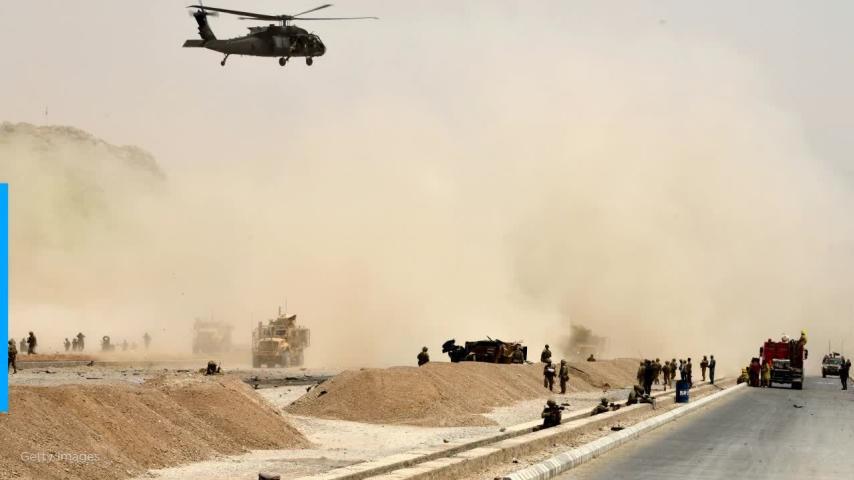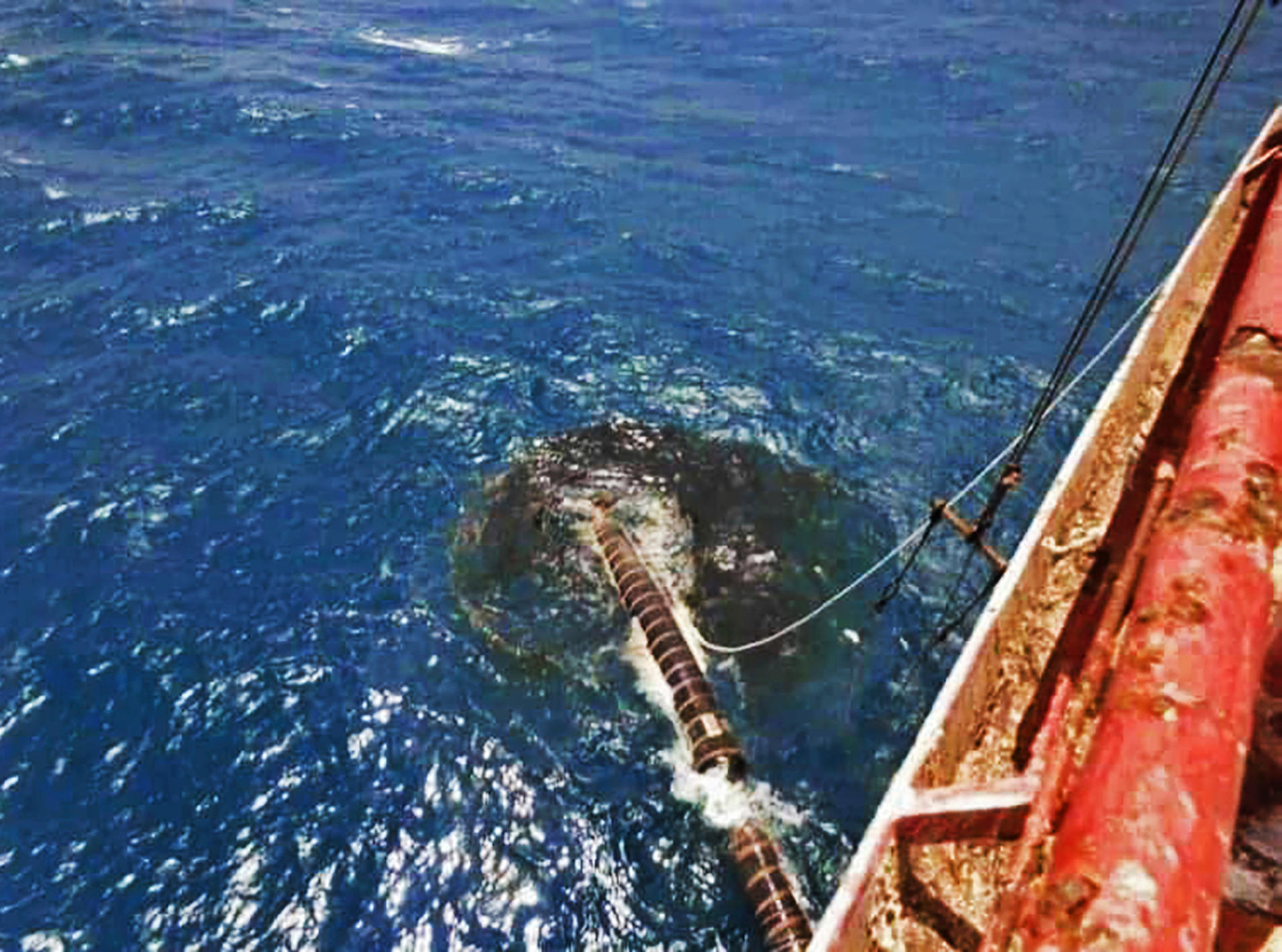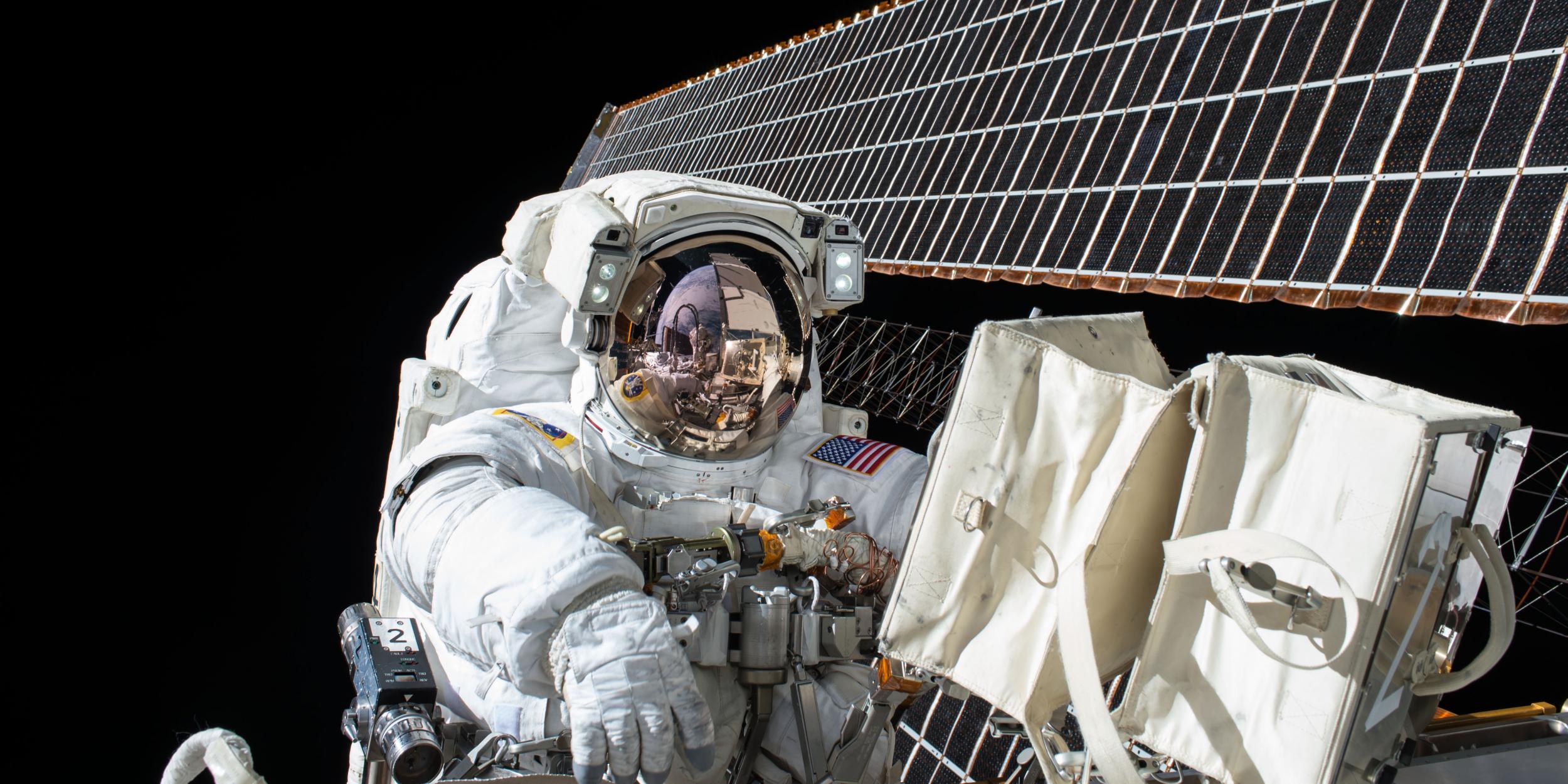June 26, 2020 By Bob Brigham

President Donald Trump has refused to authorize any response after being briefed that Russia was offering bounties for the killing of U.S. troops, according to a bombshell new report in The New York Times.
“American intelligence officials have concluded that a Russian military intelligence unit secretly offered bounties to Taliban-linked militants for killing coalition forces in Afghanistan — including targeting American troops — amid the peace talks to end the long-running war there,” the newspaper reported, citing “officials briefed on the matter.”
“The United States concluded months ago that the Russian unit, which has been linked to assassination attempts and other covert operations in Europe intended to destabilize the West or take revenge on turncoats, had covertly offered rewards for successful attacks last year,” The Times explained. “Islamist militants, or armed criminal elements closely associated with them, are believed to have collected some bounty money, the officials said. Twenty Americans were killed in combat in Afghanistan in 2019, but it was not clear which killings were under suspicion.”
Trump was offered options to respond, but has taken no action.
“The intelligence finding was briefed to President Trump, and the White House’s National Security Council discussed the problem at an interagency meeting in late March, the officials said. Officials developed a menu of potential options — starting with making a diplomatic complaint to Moscow and a demand that it stop, along with an escalating series of sanctions and other possible responses, but the White House has yet to authorize any step, the officials said,” the newspaper explained. “Any involvement with the Taliban that resulted in the deaths of American troops would also be a huge escalation of Russia’s so-called hybrid war against the United States, a strategy of destabilizing adversaries through a combination of such tactics as cyberattacks, the spread of fake news and covert and deniable military operations.”
Dmitry Peskov, Russian President Vladimir Putin’s press secretary, said the United States had not raised the issue.
“If someone makes them, we’ll respond,” Peskov said of the accusation.
American troops were reportedly not the only ones to be targeted.
“The officials familiar with the intelligence did not explain the White House delay in deciding how to respond to the intelligence about Russia,” the newspaper reported. “They said the intelligence has been treated as a closely held secret, but the administration expanded briefings about it this week — including sharing information about it with the British government, whose forces are among those said to have been targeted.”
EXCLUSIVE: A Russian spy unit secretly offered bounties to militants in Afghanistan for killing American troops, U.S. intelligence officials found. Trump and White House have known for months, but not authorized any response.
w/ @EricSchmittNYT @mschwirtzhttps://t.co/o5NKTRDE8h
— Charlie Savage (@charlie_savage) June 26, 2020
Trump is owned by Putin’: President accused of ‘literal treason’ after bombshell NYT report on Russian assassination unit
June 26, 2020 Bob Brigham

President Donald Trump was harshly criticized on Friday after a bombshell New York Times report on Russia offering bounties for the killing of U.S. troops in Afghanistan.
“American intelligence officials have concluded that a Russian military intelligence unit secretly offered bounties to Taliban-linked militants for killing coalition forces in Afghanistan — including targeting American troops — amid the peace talks to end the long-running war there,” the newspaper reported,” the newspaper reported.
“The intelligence finding was briefed to President Trump, and the White House’s National Security Council discussed the problem at an interagency meeting in late March, the officials said. Officials developed a menu of potential options — starting with making a diplomatic complaint to Moscow and a demand that it stop, along with an escalating series of sanctions and other possible responses, but the White House has yet to authorize any step, the officials said,” the newspaper explained. “Any involvement with the Taliban that resulted in the deaths of American troops would also be a huge escalation of Russia’s so-called hybrid war against the United States, a strategy of destabilizing adversaries through a combination of such tactics as cyberattacks, the spread of fake news and covert and deniable military operations.
“The intelligence finding was briefed to President Trump, and the White House’s National Security Council discussed the problem at an interagency meeting in late March, the officials said. Officials developed a menu of potential options — starting with making a diplomatic complaint to Moscow and a demand that it stop, along with an escalating series of sanctions and other possible responses, but the White House has yet to authorize any step, the officials said,” the newspaper explained. “Any involvement with the Taliban that resulted in the deaths of American troops would also be a huge escalation of Russia’s so-called hybrid war against the United States, a strategy of destabilizing adversaries through a combination of such tactics as cyberattacks, the spread of fake news and covert and deniable military operations.”
Dmitry Peskov, Russian President Vladimir Putin’s press secretary, said the United States had not raised the issue.
“If someone makes them, we’ll respond,” Peskov said of the accusation.
American troops were reportedly not the only ones to be targeted.
“The officials familiar with the intelligence did not explain the White House delay in deciding how to respond to the intelligence about Russia,” the newspaper reported. “They said the intelligence has been treated as a closely held secret, but the administration expanded briefings about it this week — including sharing information about it with the British government, whose forces are among those said to have been targeted.”
EXCLUSIVE: A Russian spy unit secretly offered bounties to militants in Afghanistan for killing American troops, U.S. intelligence officials found. Trump and White House have known for months, but not authorized any response.
w/ @EricSchmittNYT @mschwirtzhttps://t.co/o5NKTRDE8h
— Charlie Savage (@charlie_savage) June 26, 2020
Trump is owned by Putin’: President accused of ‘literal treason’ after bombshell NYT report on Russian assassination unit
June 26, 2020 Bob Brigham

President Donald Trump was harshly criticized on Friday after a bombshell New York Times report on Russia offering bounties for the killing of U.S. troops in Afghanistan.
“American intelligence officials have concluded that a Russian military intelligence unit secretly offered bounties to Taliban-linked militants for killing coalition forces in Afghanistan — including targeting American troops — amid the peace talks to end the long-running war there,” the newspaper reported,” the newspaper reported.
“The intelligence finding was briefed to President Trump, and the White House’s National Security Council discussed the problem at an interagency meeting in late March, the officials said. Officials developed a menu of potential options — starting with making a diplomatic complaint to Moscow and a demand that it stop, along with an escalating series of sanctions and other possible responses, but the White House has yet to authorize any step, the officials said,” the newspaper explained. “Any involvement with the Taliban that resulted in the deaths of American troops would also be a huge escalation of Russia’s so-called hybrid war against the United States, a strategy of destabilizing adversaries through a combination of such tactics as cyberattacks, the spread of fake news and covert and deniable military operations.
Here’s some of what people were saying about the scandal:
This the same group, Unit 29155 of Russia’s military intelligence agency, implicated in the poisoning of Sergei Skripal in Britain and a coup attempt in Montenegro. It has never been publicly accused of involvement in attacks on Western soldiers
— Michael Schwirtz (@mschwirtz) June 26, 2020
"Article I, Section 29, of the State Constitution is similar to Article III, Section 3 of the United States Constitution, limiting the legal definition of "treason" to levying war against the State or giving "aid and comfort" to the enemies of the State."
— Contented Independent (@ContentedIndie) June 26, 2020
WHO GAVE THE STAND DOWN ORDER https://t.co/ZX6usoAQL5
— David Waldman-1, of Yorktown LLC™ (@KagroX) June 26, 2020
Trump is owned by Putin completely and a fucking traitor. https://t.co/wC5G6UhA4S
— Todd Poirier (@todd_poirier) June 26, 2020
Why isn't Trump trying to stop Russia from trying to kill U.S. soldiers? https://t.co/PCm6hTzjQI
— Eric Geller (@ericgeller) June 26, 2020
There's a word for giving aid and comfort to our nation's enemies during wartime. What was it again? Can't put my finger on it… https://t.co/Y9tLBA0pUy
— Patrick S. Tomlinson (@stealthygeek) June 26, 202
This will erode Trump's support with military and veteran families. https://t.co/pY8pOP2I47
— Cheri Jacobus (@CheriJacobus) June 26, 2020
Shocking. And Trump continues to call Putin his friend — his one consistent foreign policy position over the last 4 years. "Russia Secretly Offered Afghan Militants Bounties to Kill U.S. Troops, Intelligence Says" https://t.co/8TtutSctUq
— Michael McFaul (@McFaul) June 26, 2020
Donald Trump’s partners in treason plotted the killing of American troops in Afghanistan. How proud Republican voters must again be of their choices. | NYT: Russia Secretly Offered Afghan Militants Bounties to Kill Troops, U.S. Intelligence Says https://t.co/DTexGdyjcs
— Mikko Alanne (@MikkoAlanne) June 26, 2020
In other words, Russia declared war on the United States and NATO.
r maybe was never at peace at any time in the last century. https://t.co/vFiu9zME4g
— Eric Garland (@ericgarland) June 26, 2020
While Trump was cozying up to Putin, Russia was paying the Taliban to kill American troops in Afghanistan https://t.co/dbKjPHLpgh
— Laura Bassett (@LEBassett) June 26, 2020
My god, the cynical deviousness of covertly paying mujahideen in Afghanistan to attack and kill your great power rivals as their military occupation unravels. Where could the Russians have even come up with *that* https://t.co/FHRoyDKpem
— Adam Weinstein (@AdamWeinstein) June 26, 2020
American soldiers dying so that Putin won’t show Donald’s pee tape.#TrumpsAmerica https://t.co/qcUZ9RS1N0
— “Tom the Dancing Bug” comic strip (@RubenBolling) June 26, 2020
‘Sickening’: Trump slammed by Dem lawmaker for staying silent while Russians pay bounty for US troop deaths
June 27, 2020 By Matthew Chapman

On Saturday, Rep. Madeleine Dean (D-PA) tore into President Donald Trump over the new report that Russia has been offering bounties to kill U.S. troops in Afghanistan — and Trump continued to publicly seek favors for Russia during that time.
“It is chilling. It is sickening. And it’s shocking, but maybe it shouldn’t be,” said Dean. “This is how rotten to the core this president is. He doesn’t seem to have any compassion or understanding. He doesn’t seem to really love this country. He doesn’t seem to really understand our Constitution. He certainly curries favor with our enemies and disrespects and disregards our allies and our friends.”
Watch below
Joe Scarborough rains hell on #MoscowMitch over silence on Trump/Russia bombshell report
June 27, 2020 By Bob Brigham

MSNBC anchor Joe Scarborough blasted Senate Majority Leader Mitch McConnell (R-KY) for silence in the wake of a bombshell New York Times report.
The newspaper on Friday reported that Russia was offering bounties for the killing of U.S. troops in Afghanistan. The report said President Donald Trump had been briefed on options for response but had not authorized any action.
After the story broke, Scarborough asked which Republicans would speak out against Trump’s conduct.
Russians are paying Islamic radicals to kill American troops in Afghanistan. Donald Trump has known about Putin targeting Americans for months and has refused to even condemn Russia diplomatically. What Republican senator will speak out against this shocking dereliction of duty?” Scarborough asked on Friday.
After silence from Republicans, Scarborough pressed the topic, referring to McConnell as “Moscow Mitch.”
“What will #MoscowMitch say about Russians putting bounties on American troops’ heads and Donald Trump saying nothing about it?” he asked. “Is #MoscowMitch as beholden to Putin as the compromised commander in chief?”
He also asked the question about four Republican senators facing tough reelection battles in 2020: Susan Collins (R-ME), Cory Gardner (R-CO), Martha McSally (R-AZ) and Lindsey Graham (R-SC).
Scarborough then added Marco Rubio (R-FL), Thom Tillis (R-NC) and Steve Daines (R-MT) to the conversation.
Here are Scarborough’s Twitter comments:
Russians are paying Islamic radicals to kill American troops in Afghanistan. Donald Trump has known about Putin targeting Americans for months and has refused to even condemn Russia diplomatically. What Republican senator will speak out against this shocking dereliction of duty? pic.twitter.com/q1GMU7bQb4
— Joe Scarborough (@JoeNBC) June 27, 2020
What will #MoscowMitch say about Russians putting bounties on American troops’ heads and Donald Trump saying nothing about it?
Is #MoscowMitch as beholden to Putin as the compromised commander in chief? What about @SenSusanCollins? @CoryGardner? @MarthaMcSally? @LindseyGrahamSC? pic.twitter.com/SSoaz2K8q4
— Joe Scarborough (@JoeNBC) June 27, 2020
Trump checklist:
Protect Confederate Statues

Protect US Troops

— Joe Scarborough (@JoeNBC) June 27, 2020
cc: @marcorubio @LindseyGrahamSC @SenSusanCollins @CoryGardner @SenMcSallyAZ @senthomtillis@SteveDaines https://t.co/jWbert5v5F
— Joe Scarborough (@JoeNBC) June 27, 2020
March 2020- Trump learns Russia is paying Islamic militants to kill Americans.
May 8, 2020- Trump says: “We have this great friendship. And, by the way, getting along with Russia is a great thing, getting along with Putin and Russia is a great thing.” https://t.co/b0Qy0SnCMB
— Joe Scarborough (@JoeNBC) June 27, 2020
https://plawiuk.blogspot.com/2020/06/russia-offered-afghans-bounty-to-kill-u.html
https://plawiuk.blogspot.com2020/06/a-dereliction-of-duty-bombshell-nyt.html
https://plawiuk.blogspot.com/2020/06/trump-administration-has-refused-/to.html
https://plawiuk.blogspot.com/2020/06/biden-slams-trump-over-reported.html
https://plawiuk.blogspot.com2020/06/a-dereliction-of-duty-bombshell-nyt.html
https://plawiuk.blogspot.com/2020/06/trump-administration-has-refused-/to.html
https://plawiuk.blogspot.com/2020/06/biden-slams-trump-over-reported.html










 (@jackresists)
(@jackresists) 
















